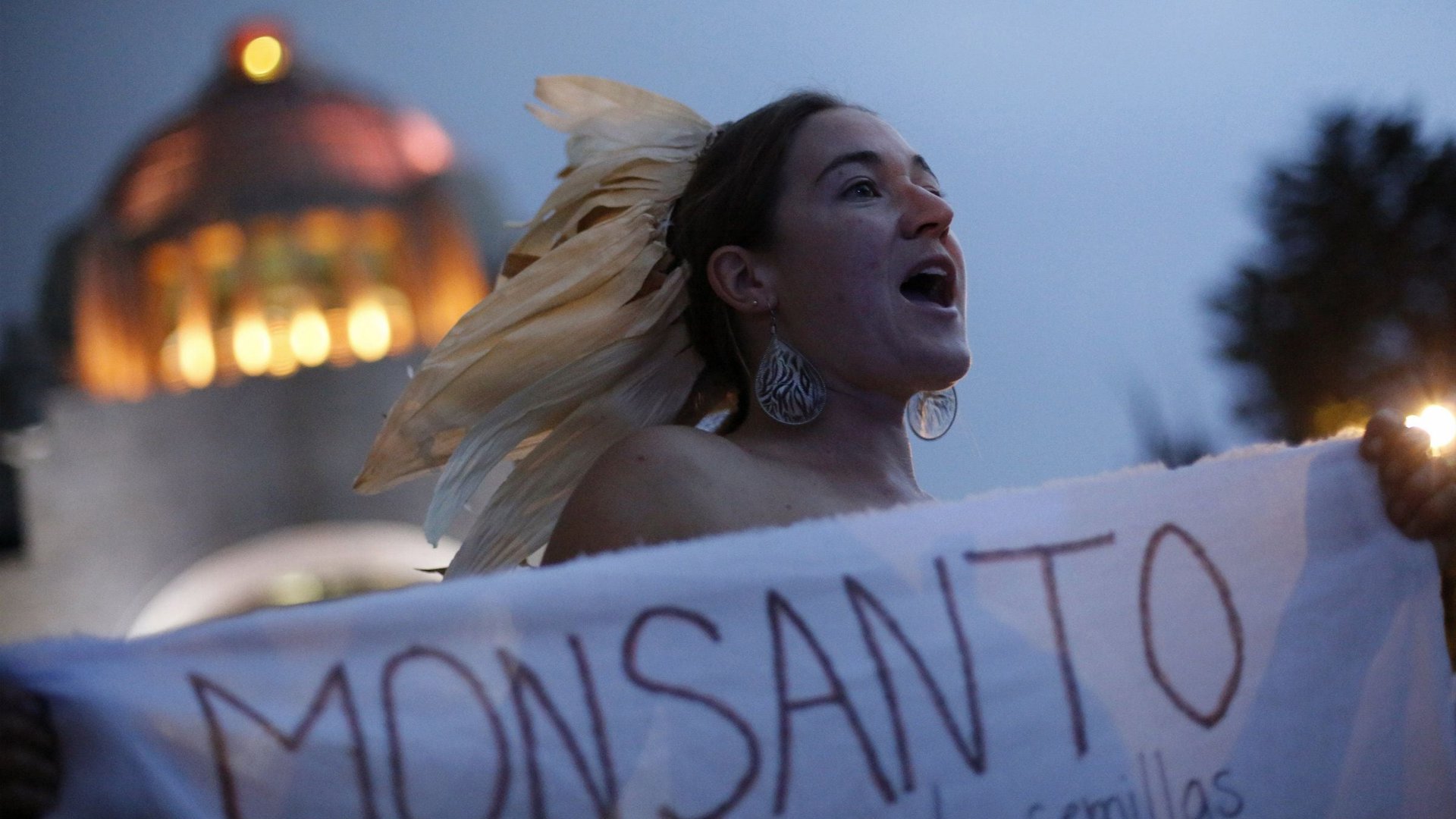Monsanto is all about organic now, but not the kind you think
The world’s biggest producer of genetically modified seeds, never far from controversy, is now into organic. Just not in the way you might think.


The world’s biggest producer of genetically modified seeds, never far from controversy, is now into organic. Just not in the way you might think.
There were three mentions of the term ”organic” during Monstanto’s latest quarterly earnings call this week, compared with just one in the previous quarter.
But these mentions had nothing to do with organic foods or chemicals. Rather the executives were giving lip service to ”organic growth,” a term used to explain growth that stems from internal innovation and investment, rather than acquisitions. Fittingly, Monsanto’s organic obsession comes after it walked away from a massive potential acquisition of Switzerland-based competitor Syngenta.
Monsanto has been a serial acquirer over the years, most recently spending about $1 billion to buy Climate Corp, a Silicon Valley startup specializing in weather analytics and risk management. But it’s all about organic growth now—the company devoted an entire section of its conference call to the topic. Here is what CEO Hugh Grant had to say about it:
We’re a global company that has strong embedded organic growth; we’re a company that’s building transformational new platforms with compelling growth prospects; and we’re a company that now intends to use our powerful cash generation and capital structure to compound growth and create value for our owners.
But old habits die hard. CFO Pierre Courduroux seemed to suggest that Monsanto won’t necessarily give up completely on its acquisitive ways:
We have the financial flexibility to pursue both organic and external growth, including investments in our business, in technology deals and M&A… I believe we can use a unique combination of growth, new opportunities and our business structure to meaningfully grow our earnings, our cash generation, and ultimately, our return to our shareowners.”
By walking away from Syngenta, Monsanto was able to free up $10 billion to spend on buying back its own shares over the next two years. Buybacks boost earnings per share growth, albeit artificially (by shrinking the number of shares by buying and retiring them, each one that remains has a claim on more of the company’s earnings). That’s more fitting for a company that over the years has played a key role in the development of fake grass and artificial sweeteners.